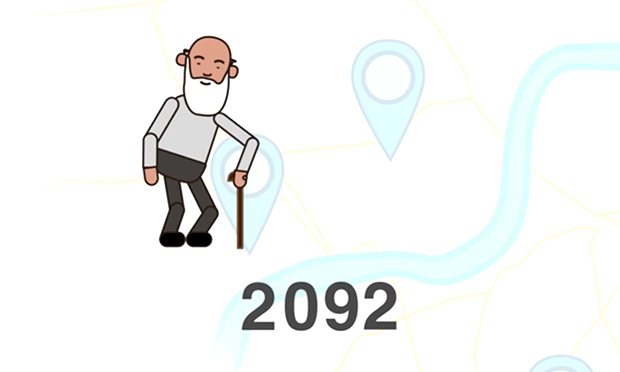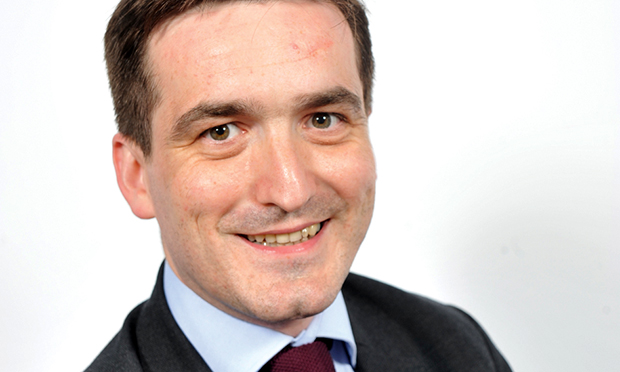Hackney among worst boroughs in London for health inequality, new figures show

People are now living longer than ever. Image: Mayor’s Office via YouTube
Men and women in Hackney spend more years in illness than the majority of Londoners, according to new figures which lay bare the extent of health inequality in the capital.
Mayor of London Sadiq Khan this week announced a consultation on his new strategy, ‘Better Health for all Londoners’, and published a map drawn up using statistics from Public Health England (PHE).
It shows men in Hackney spend on average 21 years of their lives in ill health, second only to those in Tower Hamlets.
Women in the borough spend even longer in sickness at 24 years, with females in Haringey and Tower Hamlets the only ones faring worse.
At the other end of the scale, women in Richmond upon Thames are ill for 14 years, and men in Enfield for just 11 years.
When quizzed about the figures, the Town Hall’s health chief Cllr Jonathan McShane highlighted the correlation between poverty and illness, as well as longer-than-ever life expectancies, saying: “In Hackney and nationally, improvements in health services have been successfully supporting people to live increasingly long lives over recent years.
“However, the age of onset of ill health remains relatively stable. This explains the particularly high number of years spent in ill health of Hackney residents, and in particular women. Clearly, this also places an increasing burden on health and care services, as we must ensure that the people receive the appropriate support they need.”
Despite recent improvements to Hackney’s score in national poverty measures, the borough is still the second most deprived in London, after Tower Hamlets.

Hackney Council’s cabinet member for health Jonathan McShane
McShane said: “As the strategy consultation notes, many Londoners enjoy some of the highest standards of living in the Western world, yet too many are still suffering ill health because of social and economic exclusion. This is perhaps felt most sharply in boroughs like Hackney, which has seen increasing prosperity over recent years for some but still has large communities of people who are suffering from financial deprivation and the health impact that creates.”
On the gender gap shown in the figures, McShane commented: “Our focus is on reducing the years spent in ill health and improving health outcomes for all, across all genders. By targeting interventions at those who need them most, we hope that these differences will reduce over time.”
He said the council’s use of data helps combat local health inequalities, such as a stop smoking drive among Turkish communities with the highest tobacco use rates in the borough, but added: “Tackling health inequality cannot be achieved by the council alone, and we need to work closely with other organisations and local people to achieve this.
“Addressing the ‘social determinants of health’ such as housing, air quality and employment is key in achieving our aims of reducing gaps in health outcomes.”
Sadiq Khan’s new strategy focuses on five strands – Healthy Children, Healthy Minds, Healthy Places, Healthy Communities and Healthy Habits – and he too called for people to work together.
He said: “Leading a healthy life should not be determined by where you live – it is unacceptable that a person’s wealth, background and postcode has such a major impact on their overall health. I want every single Londoner to be able to enjoy a healthy and happy life.
“London has the potential to become one of the world’s healthiest major cities. If we are to achieve this ambition, we must start by reducing some of the massive inequalities that exist in the capital.
“From improving air quality and reducing childhood obesity to promoting good mental health and decreasing social isolation, all of us have a part to play in improving the health of Londoners.”
Prof Yvonne Doyle, PHE’s London chief and Khan’s health advisor, echoed his words, saying: “There are wide variations in health and healthy life expectancy across the capital due to a diverse range of issues. This needs action from different agencies to change the current pattern of early mortality, build healthier communities and support the people who need most help.”
The consultation on Sadiq Khan’s new strategy will run until 30 November 2017, with the final Health Inequalities Strategy set to be published in 2018.
You can find out more about the Mayor of London’s plan and have your say here.
